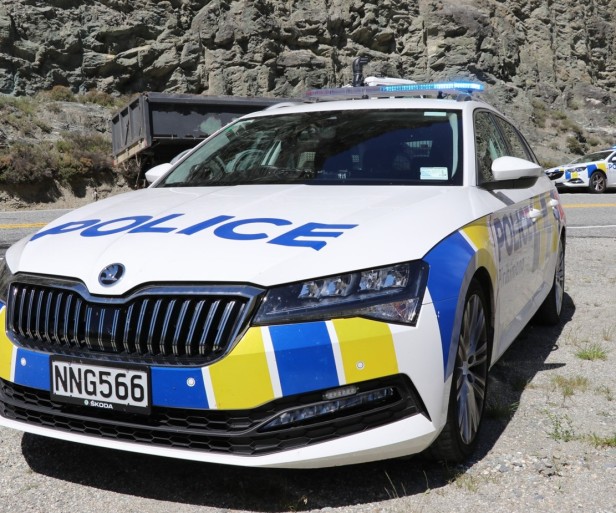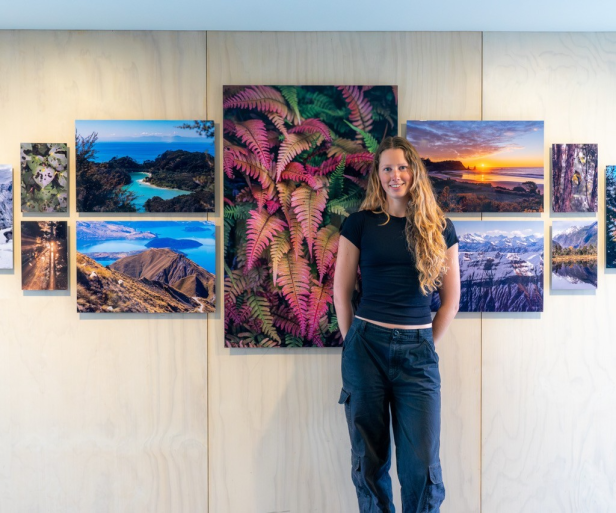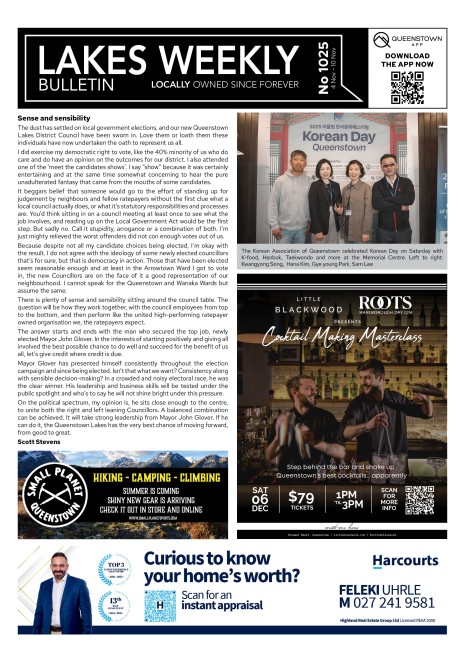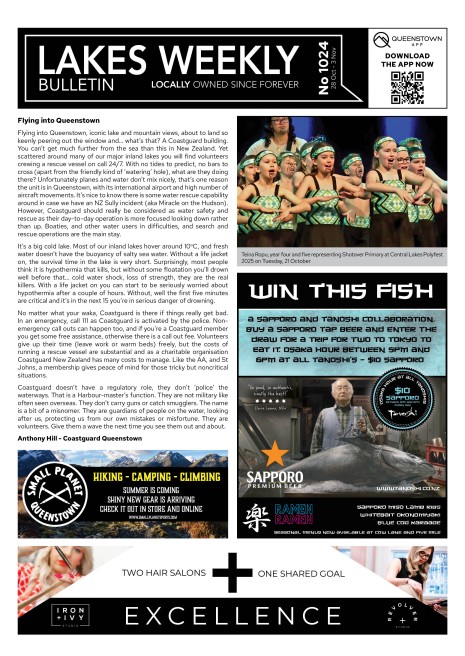Roadworks, traffic and parking woes impacting some CBD businesses
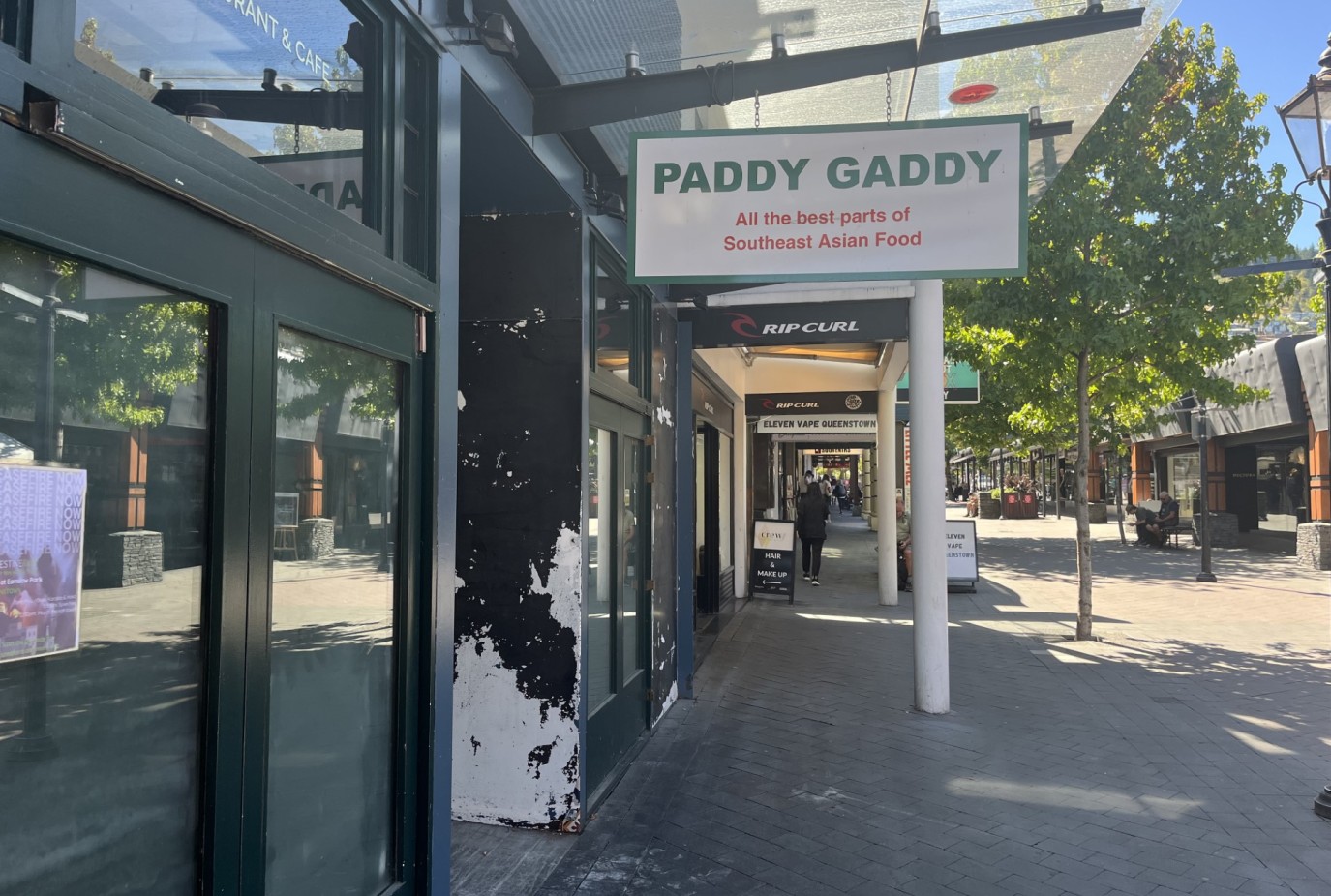
Constant roadworks, Frankton Road traffic congestion, a desperate shortage of parking, rising costs, shrinking margins and economic pressures are being cited as the most likely reasons for four CBD restaurant closures recently.
Hell’s Pizza, Paddy Gaddy, Taco Medic and Joe’s Garage have all closed downtown.
Taco Medic, founded by two young Kiwi cousins who have since sold out, was Number 1 on Trip Advisor for four years in Queenstown.
Both its Searle Lane restaurant downtown, and its Five Mile restaurant in Frankton, have closed and director Trevor Gile says it’s so unfortunate that things didn’t work out. “Everyone involved is
heartbroken,” he says.
Joe’s Garage owners have also closed their Searle Lane restaurant, choosing to focus on their busy Five Mile venue, popular with locals, and their three Airspresso outlets at Queenstown Airport. The Searle Lane premises have been taken over by Black Burger.
Paddy Gaddy in Queenstown Mall has advertised its permanent closure too.
It seems a combination of challenges are to blame, including high rents and rising costs, but key is parking. As the urban sprawl across the wider basin continues, many locals say they can’t be bothered battling the traffic and numerous roadworks to get into town any more, only to find no parking.
Chamber of Commerce CEO Sharon Fifield says the rising cost of doing business is not only an issue facing local restaurateurs with some national retailers being affected too.
The Warehouse Group has just sold its struggling downtown outdoor brand Torpedo7 for $1.
Mountain Warehouse is closing its CBD Clearance Store due to a lease expiring, but the main CBD remains open.
“It’s tough having a business in the Queenstown CBD right now,” Fifeld says.
“Members are struggling to recruit and retain staff, partly because of parking. So many parks have been taken out with the CBD upgrade - 200 or so lost, with no alternative parking as promised. That’s one of the biggest issues facing downtown businesses now.”
Other parking costs have risen, and roadworks continue to take out more.
While the mix has changed and visitor numbers have been strong this summer, businesses and hospitality operators are still dealing with rising food and operating costs squeezing their margins.
“For some it’s obviously the last straw,” she says.
However, while some restaurants may be consolidating, even remaining closed several nights a week amid rising costs and staffing challenges, some of the more established operators are expanding.
Wai Group director Jan Rae says she was surprised to hear of closures downtown as business is good. Wai owns Finz, Public and Bella Cucina.
“We’re back to normal levels, but I do know people in town who are finding it difficult,” she says. “Streetscaping has caused a lot of issues, especially in Brecon Street and Beach Street when it was being redeveloped.
“There are lots of tourists. They’re our markets and they’re back in force.”
However, she believes those relying on locals will be impacted with locals not coming into town because of the serious traffic congestion on Frankton Road and parking.
She’s concerned that once construction begins on the new BP Roundabout and traffic lights that traffic problems will just get worse, adding a possible four more years of disruption.
Despite all that there’s still a real vibrancy downtown.
Wai’s Finz and Public are closing from mid-April until late June for renovations and expansion, while the owners of Flame have taken over neighbouring Ivy and Lola’s and are doing a three-month rebuild and expansion.
Local Restaurant Association president Penelope Johnson says a lot of customers are definitely deterred by parking and the length of time in roadworks. Rising costs are a huge issue too with some items not just doubling, but tripling in the last year or so, she says.
Co-president partner Sam Gruar says labour is a huge cost with chefs being paid 30% more than prior to Covid. Vegetables and meat have reached “crazy prices”. Restaurateurs are overworked and exhausted.
These costs are passed on to customers who probably have less disposable income now to dine out.
“There shouldn’t be restaurants closing at this time of year. It’s boom time,” Gruar says.
Hospitality NZ senior regional manager Darelle Jenkins says rising business costs and reduced local patronage have made it tough for all hospitality operators as households cut back.
"We’re always saddened to hear of a business making the difficult decision to close,” she says. The increase in international visitors has helped significantly, but it’s still a challenging environment for many.
“Regionally we have also had a large number of car parks removed and a significant amount of roadworks to contend with, which has discouraged locals from making that extra trip into town,” Jenkins says.
Adapting to the spending squeeze
Economists say business margins are being consistently squeezed as it becomes increasingly hard for restaurants and retailers to encourage people to part with their money.
With mortgage rates and costs rising it’s clear households are being much more cautious with spending and are on a tighter budget, Brad Olsen, of Infometrics, says.
Queenstown’s traffic and parking woes have obviously only aggravated the customer drift out to Frankton and beyond.
The likes of restaurants have to make a strong case with a good offering and service and maybe get creative with their options if traffic and parking issues are deterring locals from venturing into downtown, Olsen says.
“If the market’s shifted they can’t sit and wait for people to come. Businesses have to evolve,” he says.
That could involve anything from some sort of park and ride offering from Frankton, or a discount code if customers recommend others to come and dine.
“Some sort of innovation is needed,” Olsen says


